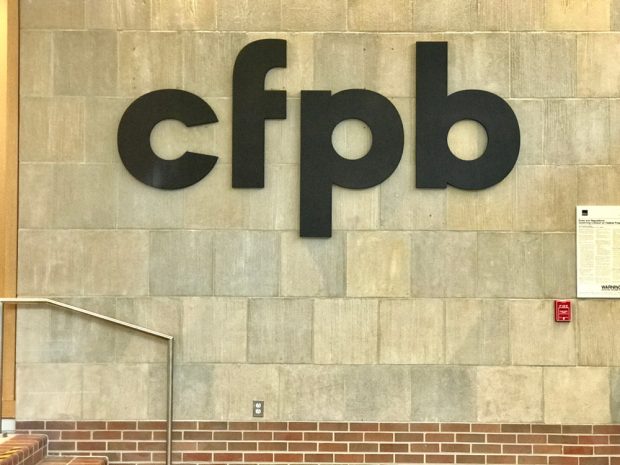 CFPB headquarters. (Source: Shutterstock)
CFPB headquarters. (Source: Shutterstock)
A check cashing company and a group of Republican state attorneys general are pressing the U.S. Supreme Court to void all actions by the CFPB, contending that the agency's structure is unconstitutional.
The Supreme Court already has accepted a case filed by Seila Law, which argues that the structure of the agency is unconstitutional because it is governed by a single director who only may be removed for cause. The law firm had received a civil investigative demand letter from the agency.
Recommended For You
However, All American Cash Checking and Mid-State Finance, Mississippi-based companies are asking the U.S. Supreme Court not only to rule on the constitutionality of the agency, but to rule that its actions are illegal.
In 2016, the CFPB, under the former Director Richard Cordray, filed suit against the companies and their owner, Michael Gray, contending that the companies and Gray committed abusive and deceptive acts and practices in their business.
For instance, the CFPB said, employees of the companies were directed never to tell customers the amount of fees they incurred when they cashed a check.
Lower courts allowed Gray and his companies to immediately ask appellate courts for a ruling on the agency's constitutionality.
The CFPB has abandoned its defense of the agency's structure but has argued that all of its actions since it was created in Dodd-Frank should not be reversed.
Gray's attorneys said, in asking the high court to consider the case, that a ruling that finds the structure of the agency would have no impact for defendants "in the midst of unlawful enforcement actions."
The state attorneys general agree.
"Because the CFPB's structure renders it unconstitutional, any enforcement action it takes is invalid," the state officials from Texas, Arkansas, Indiana, Kansas, Louisiana, Nebraska, Ohio, Oklahoma, South Carolina, Utah and West Virginia said in their brief.
© Touchpoint Markets, All Rights Reserved. Request academic re-use from www.copyright.com. All other uses, submit a request to [email protected]. For more inforrmation visit Asset & Logo Licensing.






